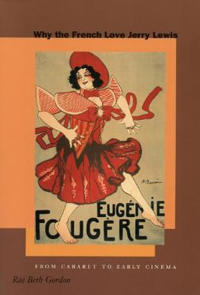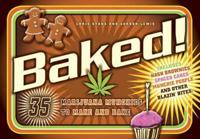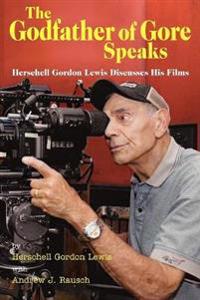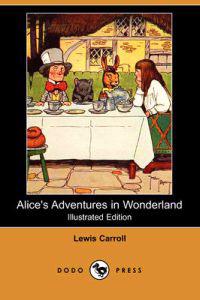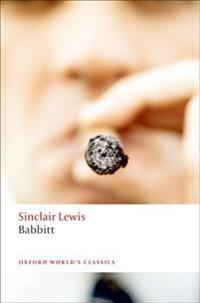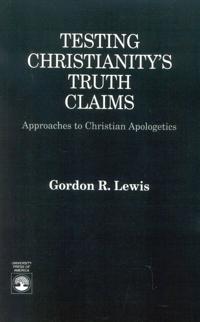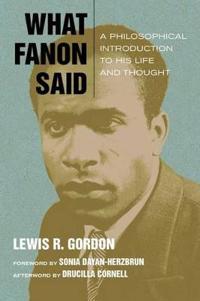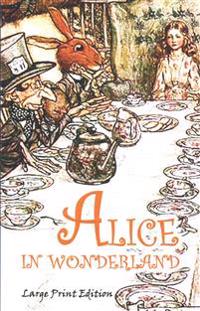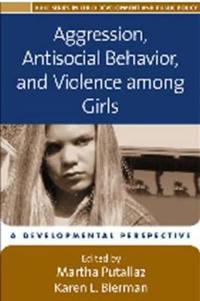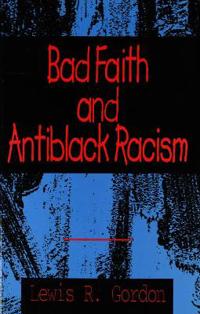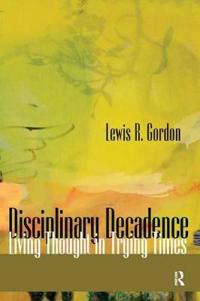Bringing Technology into the Classroom (Pocket)
avGordon Lewis
ISBN: 9780194425940 - UTGIVEN: 2010-02-01Why the French Love Jerry Lewis (Häftad)
avRae Beth Gordon
ISBN: 9780804738941 - UTGIVEN: 2001-10Vividly bringing to light the tradition of physical comedy in the French cabaret, cafe-concert, and early French film comedy, this book answers the perplexing question, "Why do the French love Jerry Lewis?" The extraordinary emphasis on nervous pathology in the Parisian cafe-concert, where the genre[...]
The Godfather of Gore Speaks - Herschell Gordon Lewis Discusses His Films (häftad)
ISBN: 9781593932978 - UTGIVEN: 2012-10Street Photography: The Art of Capturing the Candid Moment (Pocket)
avGordon Lewis
ISBN: 9781937538378 - UTGIVEN: 2015-06-30Since the advent of the camera, there have been photographers whose mission is to record and interpret the public sphere in all its aspects. The work of the greats such as Eugene Atget and Henri Cartier-Bresson has inspired generations of photographers to wander public spaces, camera in hand, search[...]
Integrative Theology (Inbunden)
avGordon R. Lewis, Bruce A. Demarest, Gordon R. Lewis
ISBN: 9780310521105 - UTGIVEN: 2014-08This three-volume set of Integrative Theology is designed to help students in a pluralistic world utilize a standard method of fruitful research. Each chapter on a major doctrine: (1) states a classic issue of ultimate concern; (2) surveys alternative past and present answers; and (3) tests those pr[...]
A Companion to African-American Studies (Övrig)
avEditor:Jane Anna Gordon, Editor:Lewis Gordon
ISBN: 9780470996645 - UTGIVEN: 2008-02-29A Companion to African-American Studies (Inbunden)
avEditor:Jane Anna Gordon, Editor:Lewis Gordon
ISBN: 9780631235163 - UTGIVEN: 2006-02-28Alice's Adventures in Wonderland (Pocket)
avLewis Carroll, Gordon (ILT) Robinson, Lewis Carroll
ISBN: 9781406597530 - UTGIVEN: 2007-11Games for Children (Pocket)
avLewis, Gordon
ISBN: 9780194372244 - UTGIVEN: 1999-09-20This book shows how to use games in the classroom to strengthen language learning.
Babbitt (Häftad)
avSinclair Lewis, Gordon Hutner
ISBN: 9780199567690 - UTGIVEN: 201006Amusing and tragic by turn, Sinclair Lewis's classic novel is a biting satire of middle-American values whose title has entered the language as a byword for smug complacency, conformity, and materialism, and whose suburban targets are still much in evidence. A successful real estate agent, George F.[...]
Existentia Africana (Pocket)
avLewis R. Gordon
ISBN: 9780415926447 - UTGIVEN: 2000-07-01The intellectual history of the last quarter of this century has been marked by the growing influence of Africana thought--an area of philosophy that focuses on issues raised by the struggle over ideas in African cultures and their hybrid forms in Europe, the Americas, and the Caribbean. "Existentia[...]
Well Connected: An Unconventional Approach to Building Genuine, Effective B (Inbunden)
avGordon S. Curtis, With:greg Lewis
ISBN: 9780470577943 - UTGIVEN: 2010-09-30Testing Christianity's Truth Claims (Pocket)
avGordon Russell Lewis
ISBN: 9780819178381 - UTGIVEN: 1991-05In this outstanding defense of Christianity, the author compares and contrasts six methods of reasoning used by philosophers during the resurgence of evangelical beliefs in the latter half of the 20th century. He looks at the empirical, rational, presuppositional, mystical, existential and verificat[...]
What Fanon Said (Inbunden)
avLewis R. Gordon, Sonia (FRW) Dayan-herzbrun, Drucilla (AFT) Cornell
ISBN: 9780823266081 - UTGIVEN: 2015-04Antiblack racism avows reason is white while emotion, and thus supposedly unreason, is black. Challenging academic adherence to this notion, Lewis R. Gordon offers a portrait of Martinican-turned-Algerian revolutionary psychiatrist and philosopher Frantz Fanon as an exemplar of "living thought" agai[...]
What Fanon Said (Pocket)
avLewis R. Gordon, Sonia (FRW) Dayan-herzbrun, Drucilla (AFT) Cornell
ISBN: 9780823266098 - UTGIVEN: 2015-04Antiblack racism avows reason is white while emotion, and thus supposedly unreason, is black. Challenging academic adherence to this notion, Lewis R. Gordon offers a portrait of Martinican-turned-Algerian revolutionary psychiatrist and philosopher Frantz Fanon as an exemplar of "living thought" agai[...]
Alice in Wonderland: Large Print Edition (Häftad)
avLewis Carroll, Gordon Robinson, Arthur Rackham
ISBN: 9781451555585 - UTGIVEN: 2010-03Aggression, Antisocial Behavior, and Violence Among Girls (Inbunden)
avLewis R. Gordon
ISBN: 9781572309944 - UTGIVEN: 200409From leading interdisciplinary authorities, this book traces the development of female aggression and violence from early childhood through adulthood. Cutting-edge theoretical perspectives are interwoven with longitudinal data that elucidate the trajectories of aggressive girls' relationships with p[...]
Bad Faith and Antiblack Racism (Pocket)
avLewis R. Gordon
ISBN: 9781573925341 - UTGIVEN: 1995-02Lewis Gordon presents the first detailed existential phenomenological investigation of anti-black racism as a form of Sartrean bad faith. Bad faith, the attitude in which human beings attempt to evade freedom and responsibility, is treated as a constant possibility of human existence. Anti-black rac[...]
Disciplinary Decadence (Häftad)
avLewis R. Gordon
ISBN: 9781594512568 - UTGIVEN: 200612In this book, philosopher and social critic Lewis Gordon explores the ossification of disciplines, which he calls disciplinary decadence. In response, he offers a theory of what he calls a teleological suspension of disciplinarity, in which he encourages scholars and lay intellectuals to pay attenti[...]


